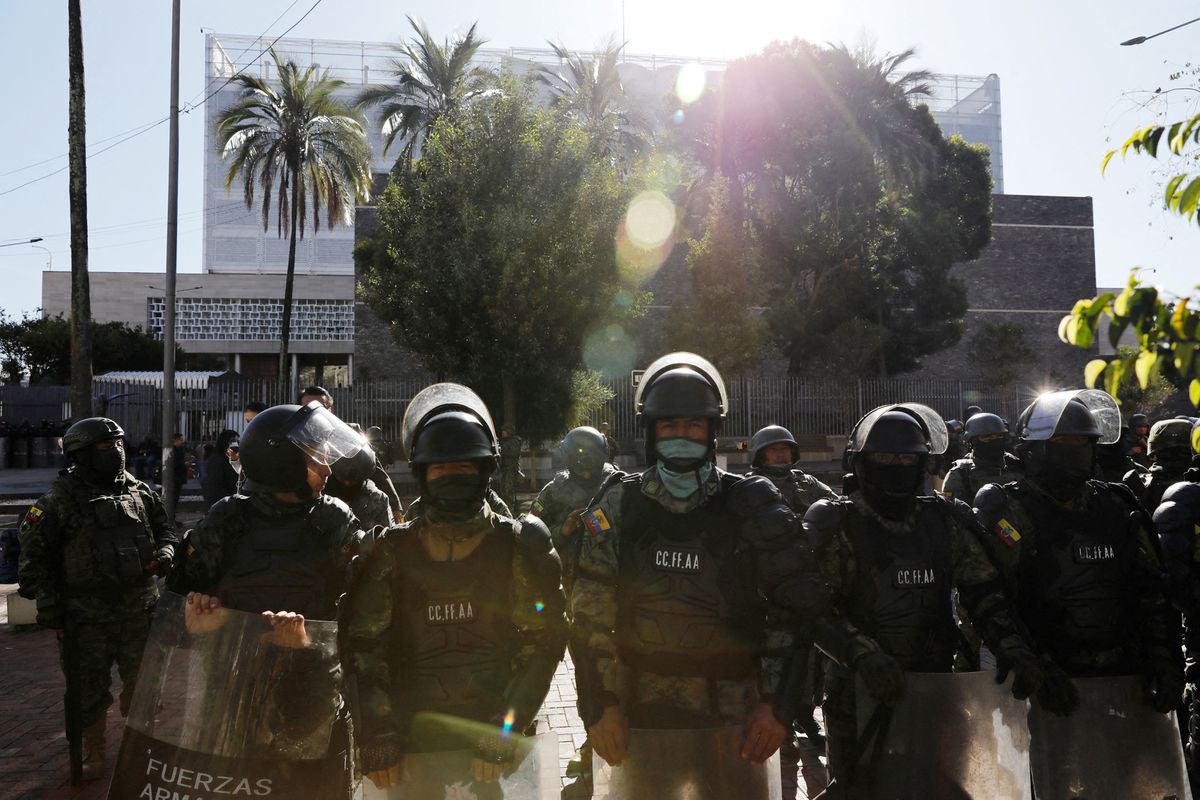
We are just a few hours away from the announcement in which the President of the Republic of Ecuador, Guillermo Lasso, announced the application of Decree 741, which will use for the first time in the country this constitutional power to dissolve and call the Assembly to elections . This unprecedented event, based on the current constitution promulgated under the Correista regime in 2008, has put the Ecuadorian people on alert.
Looking at the analysis of those first moments, what happened and Lasso’s decision has several aspects. First, the President is ready to go home, having ruled with full powers for two years and then for about six months, always subject to the Constitution of course, until the elections take place. Secondly, it appears that there is support from the armed forces and the police, who have been alerted and have surrounded the National Parliament, blocking MPs and other staff from entering. In other words: This support from the law enforcement agencies in the country can be inferred. The third question is: Who are the main beneficiaries of this President’s decision?
Those best prepared to run a presidential candidacy and perform well in legislatures will be the members of former President Rafael Correa’s party. This formation just got over a very complicated situation in the previous presidential elections, but in the last local elections it won the country’s most important mayors and prefectures, as well as a very significant number of mayors and district authorities. The decision puts them in a very favorable and expectant position with an upcoming election process.
A concern in the country is the lack of other leaders, particularly on the right and center, to counter a potentially overwhelming involvement of the UNES party, Correa’s previous citizens’ revolution and with it. There could be an advance of so-called 21st century socialism in force in many Latin American countries.
What can citizens do? To the people living in fear due to the recent increase in insecurity, be aware of the importance of the processes that follow, particularly the electoral process, and demand that the President, who now no longer has what his bills are when If he is not approved by Parliament, he can pursue an effective social policy that justifies his government. On the other hand, citizens need to think carefully about the choices they are being offered.
Political parties in this sense have an enormous responsibility to propose better cadres that do not emulate what happened in the Legislative Assembly with parliamentarians who did not live up to the circumstances, were involved in shameful situations and have terrible qualifications before the citizenry. . The big unknown will be the Pachakutik movement, the Conaie as an indigenous organization, and other parties like the Democratic Left and the Social Christian Party, which could be hit hard by an immediate electoral process given the attrition they have suffered in recent years , especially given the failure of mayors like Guayaquil in the previous period.
Join EL PAÍS to follow all the news and read without restrictions.
subscribe to
The climate of political instability worries economic and social actors and contributes to the deterioration of the living conditions of a large majority of the Ecuadorian population.
Rosalia Arteaga Serrano She was President of Ecuador from February 6 to 11, 1997. She is also a former Vice President.
Follow all international information on Facebook and Twitteror in our weekly newsletter.
Subscribe to continue reading
Read without limits

